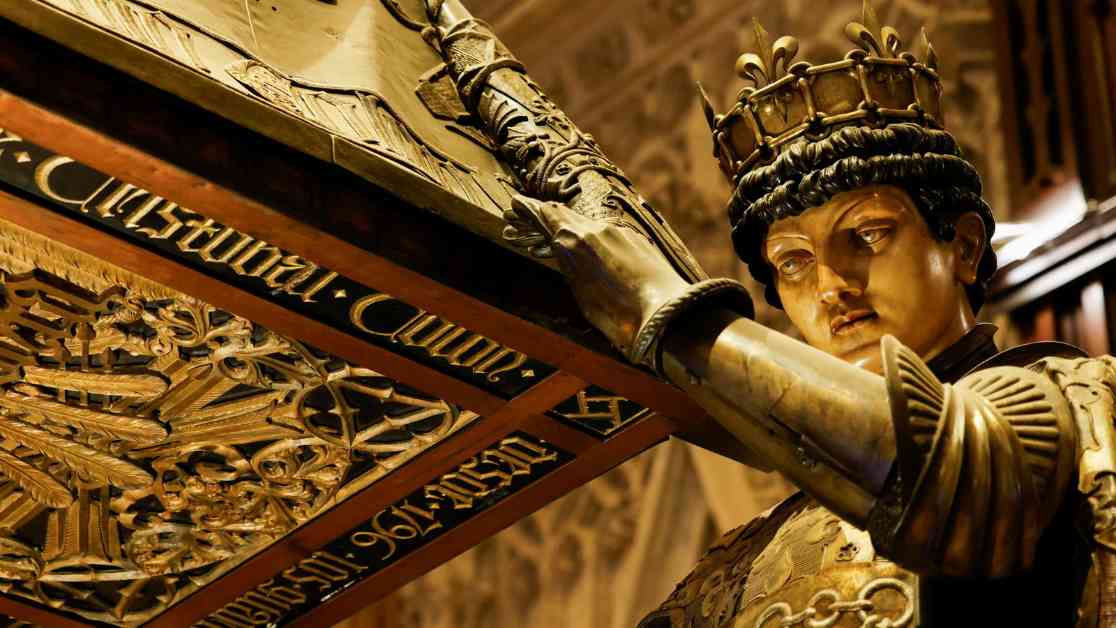The centuries-old mystery surrounding the origins of explorer Christopher Columbus is on the verge of being solved. After years of speculation, Spanish scientists have finally confirmed that his remains are indeed buried in a tomb located in the Seville Cathedral in Spain. This revelation puts to rest the long-standing debate over the final resting place of the famous explorer.
Christopher Columbus, a divisive figure known for leading Spanish-funded expeditions to the Americas in the 15th century, has long been associated with Genoa, Italy. However, new DNA analysis conducted by researchers, led by forensic expert Miguel Lorente, has raised questions about Columbus’s true nationality. The findings are set to be revealed in a documentary titled Columbus DNA: The True Origin, which will air on Spain’s national broadcaster TVE.
During a recent press briefing, Lorente refrained from disclosing the exact conclusions of the research but emphasized that the remains in Seville indeed belong to Columbus. He described the outcome as “almost absolutely reliable,” shedding light on the complex process of determining Columbus’s nationality due to various factors and a vast amount of data.
Columbus, who passed away in Valladolid, Spain, in 1506, expressed a desire to be buried on the island of Hispaniola, which is now shared by the Dominican Republic and Haiti. Over the years, his remains were moved multiple times, eventually leading to their placement in Seville in 1898. However, conflicting claims suggest that some of Columbus’s remains might still reside in the Caribbean, specifically in Santo Domingo, the capital of the Dominican Republic, where a lead casket containing bone fragments was discovered in 1877.
In light of the ongoing debate surrounding Columbus’s legacy, there has been a growing opposition to Columbus Day celebrations, which commemorate his arrival in the Americas on 12 October. Critics argue that glorifying Columbus overlooks the atrocities committed against indigenous populations upon his arrival. Nick Tilsen, president of the NDN Collective, an indigenous-led advocacy group, condemned the celebration of Columbus, labeling him as a lost explorer who brought devastation to millions of indigenous people.
The imminent revelation of Columbus’s true origins promises to offer new insights into the life and legacy of the renowned explorer. By utilizing advanced DNA analysis and forensic techniques, researchers aim to provide a definitive answer to the age-old question of Columbus’s nationality, bringing closure to a centuries-old mystery that has captivated historians and scholars for generations. As we await the unveiling of these groundbreaking findings, the legacy of Christopher Columbus continues to be a subject of debate and scrutiny, prompting us to reconsider the historical narratives that shape our understanding of the past.




